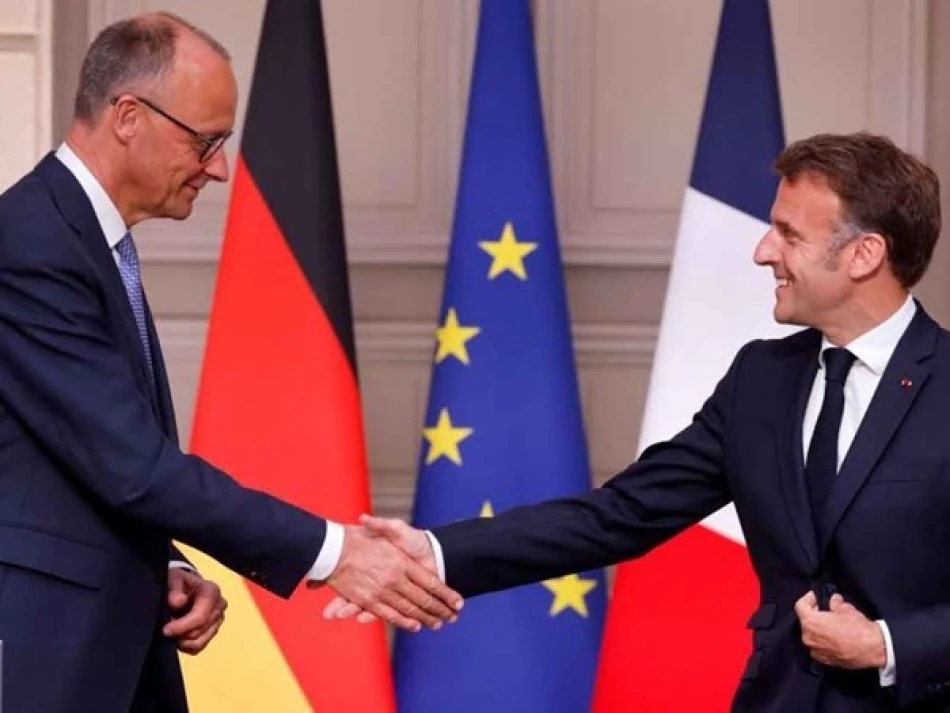
German Chancellor Hosts Macron for High-Level Talks in Berlin
Merz and Macron Seek to Reboot Franco-German Alliance Amid European Uncertainty
German Chancellor Friedrich Merz will host French President Emmanuel Macron for dinner Wednesday evening at Villa Borsig overlooking Lake Tegel in Berlin, marking the first high-stakes diplomatic encounter between the leaders since Germany's government transition in May. The meeting signals a deliberate effort to reinvigorate the Franco-German partnership at a time when Europe faces mounting economic and security challenges.
A Fresh Start After Political Upheaval
This dinner represents Macron's first visit to Germany since the country's government change on May 6, when Merz assumed the chancellorship. The timing is significant—Merz traveled to Paris the day after his election, demonstrating his commitment to prioritizing the Franco-German relationship from the outset of his tenure.
The choice of Villa Borsig, now a guesthouse operated by the German Foreign Ministry, underscores the formality and importance both leaders place on this diplomatic reset. The lakeside setting provides an intimate backdrop for what promises to be substantive discussions on Europe's future direction.
Economic Competitiveness Takes Center Stage
The leaders plan to focus heavily on European competitiveness—a pressing concern as the continent struggles to match the economic dynamism of the United States and China. This emphasis reflects growing anxiety in Brussels and national capitals about Europe's declining industrial base and innovation gap.
Both Germany and France face similar challenges: aging populations, high energy costs following the Ukraine conflict, and the need to transition to green technologies while maintaining industrial strength. Their collaboration on economic reforms could set the template for broader EU policy coordination.
Security and Defense: Beyond NATO Dependencies
Defense cooperation will feature prominently in the discussions, particularly as Europe grapples with uncertainty about future U.S. commitments under changing American leadership. The Franco-German axis has historically driven European integration, and defense represents one area where deeper collaboration could yield tangible results.
France's nuclear capabilities combined with Germany's industrial capacity create natural synergies for European strategic autonomy—a concept that has gained urgency amid global geopolitical shifts.
Implications for European Leadership
This meeting carries weight beyond bilateral relations. The Franco-German partnership has traditionally served as the engine of European integration, from the European Coal and Steel Community to the eurozone. However, recent years have seen this relationship strain under different approaches to fiscal policy, energy strategy, and relations with Russia.
Merz's early diplomatic outreach to Paris suggests he recognizes that German leadership in Europe requires French partnership. For Macron, facing domestic political challenges, a strong relationship with Germany's new leadership offers an opportunity to reassert France's role in shaping European policy.
The success of this diplomatic reset could determine whether Europe can present a unified response to the economic and security challenges of the next decade, or whether it will continue to struggle with internal divisions that limit its global influence.
Most Viewed News

 Layla Al Mansoori
Layla Al Mansoori






